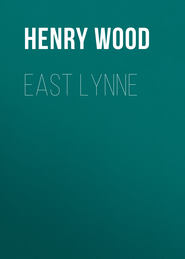По всем вопросам обращайтесь на: info@litportal.ru
(©) 2003-2024.
✖
Mildred Arkell. Vol. 2 (of 3)
Настройки чтения
Размер шрифта
Высота строк
Поля
"Just call the captain here, will you?" resumed the lady; "I know we are going down. I'm never ill aboard these horrid boats; but I'm worse, I'm dreadful timid."
"There ain't no danger, ma'am," said the boy.
"I know there is danger, and I know we are a going to be emerged to the bottom. If you'll call the capting down here, boy, I'll give you sixpence; and if you don't call him, I'll have you punished for insolence."
"Call him directly, ma'am," said the boy, rushing off with alacrity.
"I am the captain," exclaimed a rough voice, proceeding from a rough head, poking itself down the companion ladder; "what's wanted of me?"
"Oh! capting, we are going to the fishes fast! and some of us is dead of fright already. The vessel'll be in pieces presently! see how she rolls and pitches! and there's the sea dashing over the decks and against them boards at the windows, such as I never heard it; and all that awful crashing and cording, what is it?"
"There ain't no danger," shortly answered the commander, mentally vowing to punch the boy's head for calling him for nothing.
"Can't you put back, and land us somewhere, or take us into smooth water?" implored the petitioner; "we'd subscribe for a reward for you, capting, sir."
"Oh, yes, yes," echoed a faint chorus of voices; "any reward."
"There's no danger whatever, I tell ye, ladies," repeated the exasperated captain. "When we've got round this bit of headland, we shall have the wind at our starn, and go ahead as if the dickens druv us."
With this consolatory information, the rough head turned round and vanished. The grinning boy came out of a corner where he had hid himself, and appealed to the lady for his promised sixpence.
"I know we are going down!" she cried, as she fumbled in her bag for one. "That capting ought to lose his place for saying there's no danger; to me it's apparent to be seen. If he'd any humanity in him, he'd put back and land us somewhere, if 'twas only on the naked shore. Good mercy! what a lurch!—and now we're going to t'other side. No danger indeed! And all my valuable luggage aboard: my silk gownds, and my shawls, and my new lace mantle! Good gracious, ma'am, don't pitch out of your berth! you'll fall atop of me. Can't you hold on? What were hands made for?"
Some hours more yet, and then the steward, who had been whisking and whirling like one possessed, now on deck, now in the cabins, and now in his own especial sanctum, amid his tin jugs and his broken crockery, came whirling in once more to the large cabin, and said they were at the mouth of Boulogne harbour. "Just one pitch more, ladies and gentlemen—there it is—and now we are in the port, safe and sound."
"Don't talk to me about being in," cried poor Mr. Dundyke, from his place on the floor, not quite sure yet whether he was dead or alive, but rather believing he'd prefer to be the former. "Please don't step upon me, anybody. I couldn't stir yet."
All minor disasters of the journey overcome, the travellers reached Paris in safety. So far, Mr. Dundyke had found no occasion to rub on with his "we" and "no," for he encountered very few people who were not able to speak, or at least understand, a little English. But when they quitted Paris—and they remained in it but two days—then their difficulties commenced; and many were the distresses, and furious the fits of anger, of the common-councilman. It pleased Mr. Dundyke to travel by diligence on cross-country roads, rather than take the rail to Lyons—of which rail, and of all rails, he had a sort of superstitious dread—but this he found easy to do, though it caused him to be somewhat longer on the road. Here his tongue was at fault. He wanted to know the names of the towns and villages they passed through, the meaning of any puzzling object of wonder he saw on his way, and he could not ask; or, rather, he did ask repeatedly, but the answers conveyed to his ears only an unmeaning sound. It vexed him excessively.
"I don't think they understand you, David," Mrs. Dundyke said to him one day.
"And how should they understand, speaking nothing but heathen gibberish?" he returned. "It's enough to make a saint swear."
Another source of annoyance was the living. Those who have travelled by diligence in the more remote parts of France, and sat down to the tables-d'hôte at the road-side inns where the diligence halted, and remember the scrambling haste observed, may imagine the distresses of Mr. and Mrs. Dundyke. In common with their countrymen in general, they partook strongly of the national horror of frog-eating, and also of the national conviction that that delicate animal furnished the component parts of at least every second dish served up in France: so that it was little short of martyrdom to be planted down to a dinner, where half the dishes, for all the information they gave to the eye, might be composed of frogs, or something equally obnoxious. There would be the bouilli first, but Mr. Dundyke, try as he would, could not swallow it, although he had once dined on red-herrings; and there would be a couple of skinny chickens, drying on a dish of watercress, but before he could hope, in his English deliberation, to get at them, they were snapped up and devoured. Few men liked good living better than David Dundyke,—how else would he have been fit to become one of the renowned metropolitan body-corporate?—and when it was to be had at anybody else's cost, none enjoyed it more. At these tables-d'hôte, eat or not eat, he had to pay, and bitter and frequent were the heartburnings at throwing away his good money, yet rising up with an empty stomach. Not a tenth part of the cravings of hunger did he and his wife ever satisfy at these miserable tables-d'hôte. The very idea of but the minutest portion of a frog's leg going into their mouths, was more repulsive to their minds than that shuddering reminiscence of the steam-packet; and, what with this dread, and their inability to ask questions, Mr. and Mrs. Dundyke were nearly starved.
One day in particular it was very sad. They had halted at an inn in a good-sized town, not very far distant from Lyons. While the soup and bouilli were being devoured, the two unfortunates ate a stray radish or two, when up bustled the waiter with a funny-looking dish, its contents wonderfully like what a roast-beef eater might suppose cooked frogs to be, and presented it to Mr. Dundyke.
"What's this?" inquired Mr. Dundyke, delicately adventuring the tip of a fork towards the suspicious-looking compound, by way of indicating the nature of his question.
"Plait-il, monsieur?"
"This, this," rapping the edge of the dish with the fork; "what is it made of? what do you call it?"
"Une fricassée de petits pigeons, à l'oseille, monsieur," replied the discerning waiter.
Poor Mr. Dundyke pushed the dish away from him with a groan. "Une fricassée de petits pigeons, à l'oseille" in French, might be "Stewed frogs" in English.
"What was all that green mess in the dish?" asked his wife.
"The saints know," groaned the common-councilman. "Perhaps it's the fashion here to cook frogs in their own rushes."
Up came the waiter with another dish, that attentive functionary observing that the Monsieur Anglais ate nothing. A solid piece of meat, with little white ends sticking out of it, rising out of another bed of green. "Oseille" is much favoured in these parts of France.
"Whatever's this?" ejaculated the common-councilman, eyeing the dish with wondering suspicion. "It's as much like a porkipine as anything I ever saw. What d'ye call it?" rapping the edge of the dish as before.
"Foie-de-veau lardé, à l'oseille, monsieur."
The common-councilman was as wise as before, and sat staring at it.
"It can't be frogs, David, this can't," suggested Mrs. Dundyke, "it is too large and solid; and I don't think it's any foreign animal. It looks to me like veal. Veal, waiter?" she asked, appealingly.
"Oui, madame," was the answer, at a venture.
"And the green stuff round it is spinach, of course. Veal and spinach, my dear."
"That's good, that is, veal and spinach. I'll try it," said Mr. Dundyke.
He helped himself plentifully, and, pushing the dish to his wife, voraciously took the first mouthful, for he was fearfully hungry.
It was a rash proceeding. What in the world had he got hold of! Veal and spinach!—Heaven protect him from poison! It was some horrible, soft compound, sharp and sour; it turned him sick at once, and set his teeth on edge. He became very pale, and called faintly for the waiter.
But the garçon had long ago whisked off to other parts of the room, and there was Mr. Dundyke obliged to sit with that nauseous mystery underneath his very nose.
"Waiter!" he roared out at length, with all the outraged dignity of a common-councilman, "I say, waiter! For the love of goodness take this away: it's only fit for pigs. There's a dish there, with two little ducks upon it, and some carrots round 'em—French ducks I suppose they are: an Englishman might shut up shop if he placed such on his table. Bring it here."
"Plait-il, monsieur?"
"Them ducks—there—at the top, by the pickled cowcumbers. I'll take one."
The waiter ranged his perplexed eyes round and round the table. "Pardon, monsieur, plait-il?"
"I think you are an idiot, I do!" roared out Mr. Dundyke, unable to keep both his hunger and his temper. "That dish of ducks, I said, and it is being seized upon! They are tearing them to pieces! they are gone! Good Heavens! are we to famish like this?"
The waiter, in despair, laid hold of a slice of melon in one hand and the salt and pepper in the other, and presented them.
"The man is an idiot!" decided the exasperated Englishman. "What does he mean by offering me melon for dinner, and salt and pepper to season it?—that's like their putting sugar to their peas! I want something that I can eat," he cried, piteously.
"Qu'est-ce que c'est que je peux vous offrir, monsieur?" asked the agonized garçon.
"Don't you see we want something to eat," retorted the gentleman; "this lady and myself? We can't touch any of the trash on the table. Get us some mutton chops cooked."
"Pardon, monsieur, plait-il?"
"Some—mut—ton—chops," repeated the common-councilman, very deliberately, thinking that the slower he spoke, the better he should be understood. "And let 'em look sharp about it."
The waiter sighed and shrugged, and, after pushing the bread and butter and young onions within reach, moved away, giving up the matter as a hopeless job.
"Let's peg away at this till the chops come," cried Mr. Dundyke. And in the fallacious hope that the chops were coming, did the unconscious couple "peg" away till the driver clacked his long whip, and summoned his passengers to resume their seats in the diligence.
"There ain't no danger, ma'am," said the boy.
"I know there is danger, and I know we are a going to be emerged to the bottom. If you'll call the capting down here, boy, I'll give you sixpence; and if you don't call him, I'll have you punished for insolence."
"Call him directly, ma'am," said the boy, rushing off with alacrity.
"I am the captain," exclaimed a rough voice, proceeding from a rough head, poking itself down the companion ladder; "what's wanted of me?"
"Oh! capting, we are going to the fishes fast! and some of us is dead of fright already. The vessel'll be in pieces presently! see how she rolls and pitches! and there's the sea dashing over the decks and against them boards at the windows, such as I never heard it; and all that awful crashing and cording, what is it?"
"There ain't no danger," shortly answered the commander, mentally vowing to punch the boy's head for calling him for nothing.
"Can't you put back, and land us somewhere, or take us into smooth water?" implored the petitioner; "we'd subscribe for a reward for you, capting, sir."
"Oh, yes, yes," echoed a faint chorus of voices; "any reward."
"There's no danger whatever, I tell ye, ladies," repeated the exasperated captain. "When we've got round this bit of headland, we shall have the wind at our starn, and go ahead as if the dickens druv us."
With this consolatory information, the rough head turned round and vanished. The grinning boy came out of a corner where he had hid himself, and appealed to the lady for his promised sixpence.
"I know we are going down!" she cried, as she fumbled in her bag for one. "That capting ought to lose his place for saying there's no danger; to me it's apparent to be seen. If he'd any humanity in him, he'd put back and land us somewhere, if 'twas only on the naked shore. Good mercy! what a lurch!—and now we're going to t'other side. No danger indeed! And all my valuable luggage aboard: my silk gownds, and my shawls, and my new lace mantle! Good gracious, ma'am, don't pitch out of your berth! you'll fall atop of me. Can't you hold on? What were hands made for?"
Some hours more yet, and then the steward, who had been whisking and whirling like one possessed, now on deck, now in the cabins, and now in his own especial sanctum, amid his tin jugs and his broken crockery, came whirling in once more to the large cabin, and said they were at the mouth of Boulogne harbour. "Just one pitch more, ladies and gentlemen—there it is—and now we are in the port, safe and sound."
"Don't talk to me about being in," cried poor Mr. Dundyke, from his place on the floor, not quite sure yet whether he was dead or alive, but rather believing he'd prefer to be the former. "Please don't step upon me, anybody. I couldn't stir yet."
All minor disasters of the journey overcome, the travellers reached Paris in safety. So far, Mr. Dundyke had found no occasion to rub on with his "we" and "no," for he encountered very few people who were not able to speak, or at least understand, a little English. But when they quitted Paris—and they remained in it but two days—then their difficulties commenced; and many were the distresses, and furious the fits of anger, of the common-councilman. It pleased Mr. Dundyke to travel by diligence on cross-country roads, rather than take the rail to Lyons—of which rail, and of all rails, he had a sort of superstitious dread—but this he found easy to do, though it caused him to be somewhat longer on the road. Here his tongue was at fault. He wanted to know the names of the towns and villages they passed through, the meaning of any puzzling object of wonder he saw on his way, and he could not ask; or, rather, he did ask repeatedly, but the answers conveyed to his ears only an unmeaning sound. It vexed him excessively.
"I don't think they understand you, David," Mrs. Dundyke said to him one day.
"And how should they understand, speaking nothing but heathen gibberish?" he returned. "It's enough to make a saint swear."
Another source of annoyance was the living. Those who have travelled by diligence in the more remote parts of France, and sat down to the tables-d'hôte at the road-side inns where the diligence halted, and remember the scrambling haste observed, may imagine the distresses of Mr. and Mrs. Dundyke. In common with their countrymen in general, they partook strongly of the national horror of frog-eating, and also of the national conviction that that delicate animal furnished the component parts of at least every second dish served up in France: so that it was little short of martyrdom to be planted down to a dinner, where half the dishes, for all the information they gave to the eye, might be composed of frogs, or something equally obnoxious. There would be the bouilli first, but Mr. Dundyke, try as he would, could not swallow it, although he had once dined on red-herrings; and there would be a couple of skinny chickens, drying on a dish of watercress, but before he could hope, in his English deliberation, to get at them, they were snapped up and devoured. Few men liked good living better than David Dundyke,—how else would he have been fit to become one of the renowned metropolitan body-corporate?—and when it was to be had at anybody else's cost, none enjoyed it more. At these tables-d'hôte, eat or not eat, he had to pay, and bitter and frequent were the heartburnings at throwing away his good money, yet rising up with an empty stomach. Not a tenth part of the cravings of hunger did he and his wife ever satisfy at these miserable tables-d'hôte. The very idea of but the minutest portion of a frog's leg going into their mouths, was more repulsive to their minds than that shuddering reminiscence of the steam-packet; and, what with this dread, and their inability to ask questions, Mr. and Mrs. Dundyke were nearly starved.
One day in particular it was very sad. They had halted at an inn in a good-sized town, not very far distant from Lyons. While the soup and bouilli were being devoured, the two unfortunates ate a stray radish or two, when up bustled the waiter with a funny-looking dish, its contents wonderfully like what a roast-beef eater might suppose cooked frogs to be, and presented it to Mr. Dundyke.
"What's this?" inquired Mr. Dundyke, delicately adventuring the tip of a fork towards the suspicious-looking compound, by way of indicating the nature of his question.
"Plait-il, monsieur?"
"This, this," rapping the edge of the dish with the fork; "what is it made of? what do you call it?"
"Une fricassée de petits pigeons, à l'oseille, monsieur," replied the discerning waiter.
Poor Mr. Dundyke pushed the dish away from him with a groan. "Une fricassée de petits pigeons, à l'oseille" in French, might be "Stewed frogs" in English.
"What was all that green mess in the dish?" asked his wife.
"The saints know," groaned the common-councilman. "Perhaps it's the fashion here to cook frogs in their own rushes."
Up came the waiter with another dish, that attentive functionary observing that the Monsieur Anglais ate nothing. A solid piece of meat, with little white ends sticking out of it, rising out of another bed of green. "Oseille" is much favoured in these parts of France.
"Whatever's this?" ejaculated the common-councilman, eyeing the dish with wondering suspicion. "It's as much like a porkipine as anything I ever saw. What d'ye call it?" rapping the edge of the dish as before.
"Foie-de-veau lardé, à l'oseille, monsieur."
The common-councilman was as wise as before, and sat staring at it.
"It can't be frogs, David, this can't," suggested Mrs. Dundyke, "it is too large and solid; and I don't think it's any foreign animal. It looks to me like veal. Veal, waiter?" she asked, appealingly.
"Oui, madame," was the answer, at a venture.
"And the green stuff round it is spinach, of course. Veal and spinach, my dear."
"That's good, that is, veal and spinach. I'll try it," said Mr. Dundyke.
He helped himself plentifully, and, pushing the dish to his wife, voraciously took the first mouthful, for he was fearfully hungry.
It was a rash proceeding. What in the world had he got hold of! Veal and spinach!—Heaven protect him from poison! It was some horrible, soft compound, sharp and sour; it turned him sick at once, and set his teeth on edge. He became very pale, and called faintly for the waiter.
But the garçon had long ago whisked off to other parts of the room, and there was Mr. Dundyke obliged to sit with that nauseous mystery underneath his very nose.
"Waiter!" he roared out at length, with all the outraged dignity of a common-councilman, "I say, waiter! For the love of goodness take this away: it's only fit for pigs. There's a dish there, with two little ducks upon it, and some carrots round 'em—French ducks I suppose they are: an Englishman might shut up shop if he placed such on his table. Bring it here."
"Plait-il, monsieur?"
"Them ducks—there—at the top, by the pickled cowcumbers. I'll take one."
The waiter ranged his perplexed eyes round and round the table. "Pardon, monsieur, plait-il?"
"I think you are an idiot, I do!" roared out Mr. Dundyke, unable to keep both his hunger and his temper. "That dish of ducks, I said, and it is being seized upon! They are tearing them to pieces! they are gone! Good Heavens! are we to famish like this?"
The waiter, in despair, laid hold of a slice of melon in one hand and the salt and pepper in the other, and presented them.
"The man is an idiot!" decided the exasperated Englishman. "What does he mean by offering me melon for dinner, and salt and pepper to season it?—that's like their putting sugar to their peas! I want something that I can eat," he cried, piteously.
"Qu'est-ce que c'est que je peux vous offrir, monsieur?" asked the agonized garçon.
"Don't you see we want something to eat," retorted the gentleman; "this lady and myself? We can't touch any of the trash on the table. Get us some mutton chops cooked."
"Pardon, monsieur, plait-il?"
"Some—mut—ton—chops," repeated the common-councilman, very deliberately, thinking that the slower he spoke, the better he should be understood. "And let 'em look sharp about it."
The waiter sighed and shrugged, and, after pushing the bread and butter and young onions within reach, moved away, giving up the matter as a hopeless job.
"Let's peg away at this till the chops come," cried Mr. Dundyke. And in the fallacious hope that the chops were coming, did the unconscious couple "peg" away till the driver clacked his long whip, and summoned his passengers to resume their seats in the diligence.











